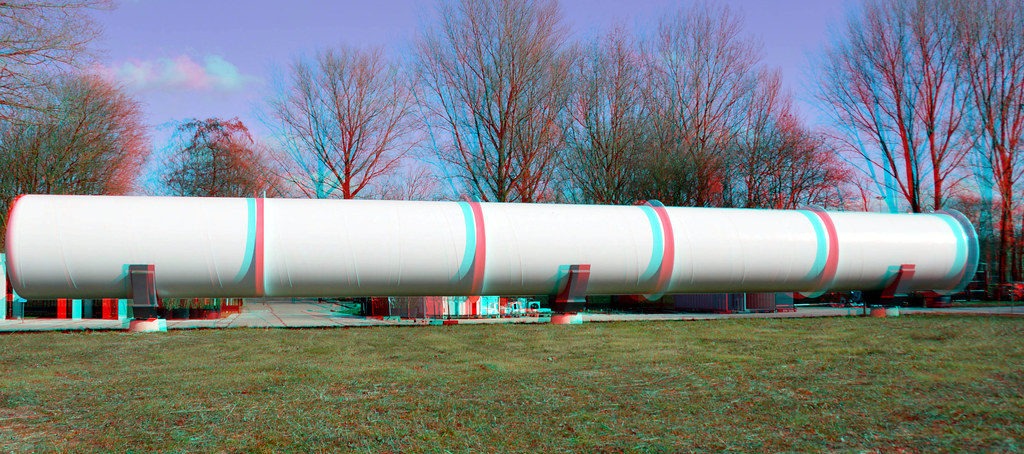Dutch start-up Hardt showed off on Thursday Europe’s first fully operational hyperloop system in a 30-meters ‘low speed’ test tunnel in Delft. For the former students of TU Delft, this is a new milestone, six years after winning Elon Musk’s contest to materialize his idea for a new transport system in vacuum tubes.
‘Fully operational’ in this case means that the system – vacuum steel tube and guiding tracks, passenger pod, magnetic levitation and propulsion system and switching between tracks – can work in a real size environment. The next step will be a 3-kilometer long near-vacuum test tunnel, in which the actual high speeds can be obtained.
Real speed to be proven
Whether this will be above 1.000 km per hour, as Elon Musk envisioned in 2013, remains to be seen. So far, the speed record was set in July last year on the Hyperloop Contest by a team of engineering students from Munich (Germany) at 457 km/h on a 1,2-km test track at Musk’s SpaceX facilities in California. But they still used a scale model to achieve it.
The latest development at the Hardt site in the Netherlands is completing the ‘switching system’ allowing the passenger pod to join the ‘main track’ or switch lanes in similar ways cars are entering or leaving the highway today.
This Hyperloop Lane Switch (HLS) technology has no moving components. It ‘pulls’ the high-speed pod to one side of the guiding rails that keep the pod centered in the nearly-vacuum tube.
First with a functional system
“After two years of research and hard work, we are the first in Europe to complete a functional hyperloop system. Not only that, we have developed a lane-switching mechanism that allows us to build a hyperloop network shortly,” writes Mars Geuze, CCO Hardt Hyperloop on the company’s blog.
That European network Hardt is dreaming of should extend over 10.000 kilometers connecting the major cities on the continent. So far, Hardt is supported by several private partners. Among these, big names like Tata Steel, Dutch Royal BAM Group and Goudsmit Magnetics, German corporations Busch and Continental, the Italian Prysmian Group, and the Swiss technology company, ABB.
Network of partners
“It’s great to see that our network of partners has expanded over the entire continent. It embodies the European identity to the fullest, and we’re going even further with the European Hyperloop Centre,” Tim Houter, CEO of Hardt Hyperloop, adds.
According to Mars Geuze, co-founder of Hardt, building a hyperloop network should be cheaper than one for high-speed trains today. He estimates the costs to be some 30 million euros per kilometer. On the other hand, maintenance on the closed steel tubes will be far cheaper than maintaining train tracks that are exposed to all weather conditions.
Meanwhile, several companies are working on the concept of the high-speed hyperloop, like American-based Hyperloop One, backed up by Virgin owner, Richard Branson, and building a test center in Spain, and competitor Hyperloop Transportation Tech.
Race to be the first
The latter is claiming to be at the forefront of winning the competition of having the first real hyperloop system operational for public use in the United Emirates. Before World Expo opens in October 2020 a 10 km stretch of the 150 km connection between Abou Dhabi and Dubai will be inaugurated.
When finished, traveling by hyperloop between both Arab cities will be a question of minutes instead of 1 hour and twenty minutes by car today, the chair and co-founder of HTT, Bibop Gresta, declared. “It’s a crazy dream, but we’re all excited now because this dream is going to become true.”
Travelling at 1.200 km per hour
In October last year, HTT unveiled in Puerto de Santa Maria near Cadiz, Spain, its full-scale hyperloop passenger pod. The 32 meters long, five-ton heavy pod will be able to transport 28 to 40 passengers at speeds up to 1.223 kph through a vacuum tunnel system. At that time Ahlborn said, “within the next three years”.
The Brussels Times

